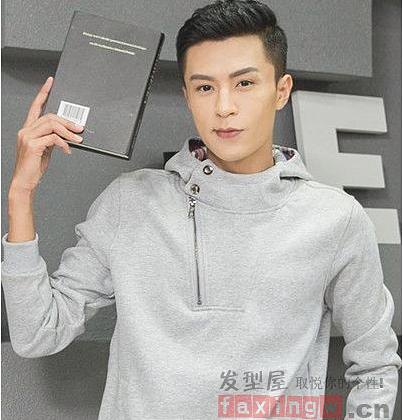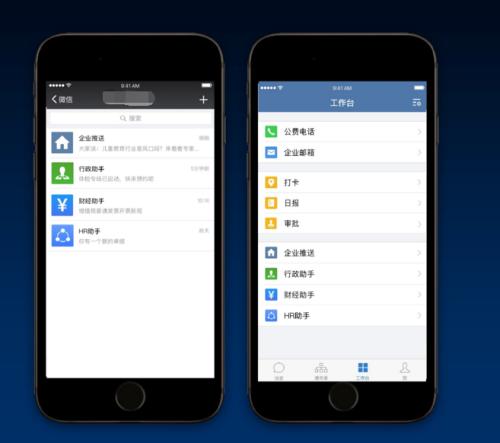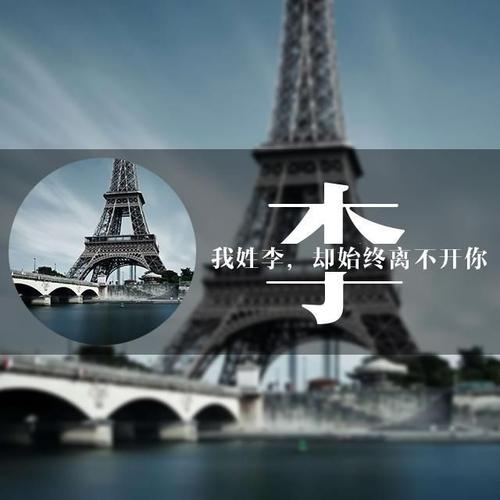翻译硕士,请问有真题吗
 其弟子曰
其弟子曰 传染
传染
参考书:1-《实用英汉翻译教程》申雨平等编,外语教学与研究出版社2—《实用汉英翻译教程》曾诚编,外语教学与研究出版社3-《翻译硕士英语真题解析》天津科技翻译出版社:包含全国40多所名校的翻译硕士英语真题,考研必备资料4-《汉语写作与百科知识真题解析》天津科技翻译出版社:59页的翻译硕士考试指南 30多所院校的448真题5-《汉语写作与百科知识》 (白皮书)李国正主编,天津科技翻译出版社考研攻略:笔译30人,口译20人。同等学力加试科目:①英语写作②英汉互译。
跪求2010年考研211翻译硕士英语真题一套。
 默剧团
默剧团.jpg) 牡丹
牡丹
以下是上外2010年翻译硕士(MTI)考试的真题,贴出来你看看吧 【翻译硕士二外】一、完形填空(全文录入,题目省略)During the first many decades of this nation’s existence, the United States was a wide-open, dynamic country with a rapidly expanding economy. It was also a country that tolerated a large amount of cruelty and pain — poor people living in misery, workers suffering from exploitation.Over the years, Americans decided they wanted a little more safety and security. This is what happens as nations grow wealthier; they use money to buy civilization.Occasionally, our ancestors found themselves in a sweet spot. They could pass legislation that brought security but without a cost to vitality. But alts know that this situation is rare. In the real world, there’s usually a trade-off. The unregulated market wants to direct capital to the proctive and the young. Welfare policies usually direct resources to the vulnerable and the elderly. Most social welfare legislation, even successful legislation, siphons money from the former to the latter.Early in this health care reform process, many of us thought we were in that magical sweet spot. We could extend coverage to the uninsured but also improve the system overall to lower costs. That is, we thought it would be possible to rece the suffering of the vulnerable while simultaneously squeezing money out of the wasteful system and freeing it up for more proctive uses.That’s what the management gurus call a win-win.It hasn’t worked out that way. The bills before Congress would almost certainly ease the anxiety of the uninsured, those who watch with terror as their child or spouse grows ill, who face bankruptcy and ruin.And the bills would probably do it without damaging the care the rest of us receive. In every place where reforms have been tried — from Massachusetts to Switzerland — people come to cherish their new benefits. The new plans become politically untouchable.But, alas, there would be trade-offs. Instead of recing costs, the bills in Congress would probably raise them. They would mean that more of the nation’s wealth would be siphoned off from proctive uses and shifted into a still wasteful health care system.The authors of these bills have tried to foster efficiencies. The Senate bill would initiate several interesting experiments designed to make the system more effective — giving doctors incentives to collaborate, rewarding hospitals that provide quality care at lower cost. It’s possible that some of these experiments will bloom into potent systemic reforms.But the general view among independent health care economists is that these changes will not fundamentally bend the cost curve. The system after reform will look as it does today, only bigger and more expensive.Rather than pushing all of the new costs onto future generations, as past governments have done, the Democrats have admirably agreed to raise taxes. Over the next generation, the tax increases in the various bills could funnel trillions of dollars from the general economy into the medical system.Moreover, the current estimates almost certainly understate the share of the nation’s wealth that will have to be shifted. In these bills, the present Congress pledges that future Congresses will impose painful measures to cut Medicare payments and impose efficiencies. Future Congresses rarely live up to these pledges. Somebody screams “Rationing!” and there is a bipartisan rush to kill even the most tepid cost-saving measure. After all, if the current Congress, with pride of authorship, couldn’t rece costs, why should we expect that future Congresses will?The bottom line is that we face a brutal choice. Reform would make us a more decent society, but also a less vibrant one. It would ease the anxiety of millions at the cost of future growth. It would heal a wound in the social fabric while piling another expensive and untouchable promise on top of the many such promises we’ve already made. America would be a less youthful, ragged and unforgiving nation, and a more middle-aged, civilized and sedate one.We all have to decide what we want at this moment in history, vitality or security. We can debate this or that provision, but where we come down will depend on that moral preference. Don’t get stupefied by technical details. This debate is about values. 二、阅读理解,回答问题Obama Loses a Round While the jury is still out on what President Obama’s China visit has achieved for the long term, the president has most decidedly lost the war of symbolism in his first close encounter with China. In status-conscious China, symbolism and protocol play a role that is larger than life. U.S. diplomatic blunders could reinforce Beijing’s mindset that blatant information control works, and that a rising China can trump universal values of open, accountable government.During Mr. Obama’s visit, the Chinese outmaneuvered the Americans in all public events, from the disastrous town hall meeting in Shanghai to the stunted press conference in Beijing. In characteristic manner, the Chinese tried to shut out the public, while the U.S. unwittingly cooperated. The final image of President Obama in China that circulated around the world is telling: A lone man walking up the steep slope of the Great Wall. The picture is in stark contrast to those of other U.S. presidents who had their photographs taken at the Great Wall surrounded by flag-waving children or admiring citizens. Maybe Mr. Obama wanted a quiet moment for himself before returning home. But a president’s first visit to the wall is a ritual that needs to be properly framed. Mr. Obama could have waited until the next visit, when he could bring the first lady and the children. Instead, he went ahead by himself to pay tribute to China’s ancient culture. In return, the Chinese offered nothing, no popular receptions, not even the companionship of a senior Chinese leader.The trouble for the U.S. started at the town hall meeting two days earlier — a more scripted event than those organized with students for earlier U.S. presidents. There was no real dialogue, as a programmed audience, most of them Communist League Youth members, asked coached questions. The Chinese also rejected the U.S. request for live national coverage and defaulted on a promise to live-stream the meeting at Xinhua.net, the online version of China’s state-owned news agency. Mr. Obama scored a point when he managed to address the issue of Internet freedom after the U.S. ambassador, Jon Huntsman, fielded him the question from a Chinese netizen submitted online.Meanwhile, Chinese officials garnered from the meeting generous quotes from Mr. Obama affirming China’s achievements and America’s expressions of good will, which were turned into glowing headlines for the Chinese media. In this round of the propaganda skirmish, the U.S. scored one point while China reaped a handful. Mr. Obama was similarly shut out from addressing the public in Beijing. At the Beijing press conference, President Hu Jintao and President Obama read prepared statements and would not take questions from reporters. “This was an historic meeting between the two leaders, and journalists should have had the opportunity to ask questions, to probe beyond the statements,” protested Scott McDonald, the president of China’s Foreign Correspondents Club, but to no avail. In a final dash to break through the information blockade, the Obama team offered an exclusive interview to Southern Weekend, China’s most feisty newspaper, based in Guangzhou. Once again, journalists’ questions were programmed and the paper censored. In protest, the paper prominently displayed vast white spaces on the first and second page of the edition that carried the interview. Propaganda officials are investigating this act of defiance.Only the Obama team knows for sure how they allowed themselves to be outmaneuvered. Unwittingly, the U.S. helped to proce a package of faux public events.Pundits argued that the visitors were not supposed to impose the “American way” on China and that America needs to respect Chinese practices. The argument is both patronizing and condescending. Increasingly, the Chinese public has been clamoring for greater official transparency and accountability, while the Chinese government has been making progress on these fronts. No one in his right mind would ask Mr. Obama to lecture Beijing on human rights. But the Chinese public deserves better accounting, no less than Americans citizens.To their credit, U.S. officials did try to get their message out online. But it was the Chinese bloggers who were most active in challenging official information control. They at least fought the good fight with growing confidence, a fight the Americans seem unable to wage effectively. 三、写作。题目是 《waste not, want not》 【英语翻译基础】一、名词解释MDGS Millennium Development Goals 千禧年发展计划Ban Ki-moon 潘基文国务卿 Secretary of State雷曼兄弟(Lehman Brothers)次贷危机subprime lending crisis西部大开发战略strategy of western development 二、英译中China's bubblesA lot of things in China carry a whiff of excess. The cost of garlic is among them: wholesale prices have almost quadrupled since March. A halving of the planting area last year, and belief in the bulb's powers to ward off swine flu, provide some justification for the surge. But anecdotes of unbridled trading activity in Jinxiang county, home to China's largest garlic plant, suggest that the most likely cause is the most obvious – the abundant liquidity swilling through the system. New loans in China may top Rmb10,000bn this year, double the run-rate of the preceding years; 2010 should bring another Rmb7-8,000bn.In the week that Dominique Strauss-Kahn, head of the International Monetary Fund, said asset bubbles were a cost worth paying for reviving growth through loose monetary policy, China needs to distinguish between good ones and bad ones. A bubble in garlic is small, financed by private speculators, and relatively harmless when it bursts. Bubbles in proctive assets – roads, bridges, telecom lines – are also tolerable; capital has been put in place that can be exploited by somebody.But bubbles in property – financed by banks, on non-proctive assets – are doubly destructive. Zhang Xin, chief executive of Soho China, one of the country's most successful privately owned developers, believes that rampant wasteful investment in commercial property has already undermined China's long-term prospects. As for housing, which China began privatising just 11 years ago, prices rose at an annualised rate of 9 per cent between September and October – significantly higher than the ongoing 2.25 per cent one-year deposit rate and the 5.31 per cent one-year lending rate. What's more, this was the eighth successive month of above-trend growth in the national house price index. So far, attempts to arrest price rises have been minor – restrictions你想报哪个学校呢?每个学校的侧重点不同,我建议你给你选中的学校打电话订购试卷。现在买还不晚……翻译硕士包括:基础英语,翻译,政治,综合
有北外的前辈知道初试的翻译硕士英语题型吗
 青花运
青花运 生俄而死
生俄而死
北外高翻只有两个专业“外国语言学和应用语言学(英汉同声传译/复语同声传译)”和“英语口译(即MTI)”,教学内容完全是一样的,都教同传。说白了如果你考的好就是读“外国语言学和应用语言学(英汉同声传译)”,拿学硕学位,学费每年两万五,考到前几名可以公费。如果你考的差一点,就是"英语口译(MTI)",拿专硕学位,学费三万,没有公费。北外MTI既有笔译又有口译,其中“英语口译”划归高翻学院,“英语笔译”划归英语学院。
求贵州大学翻译硕士方向(MTI)历年真题。(包括百科知识,基础英语和英汉互译三科)。
 共青城
共青城 似臼
似臼
你好,获取真题的途径主要有以下五个:一是直接找该大学的学生学长要;二是去该大学找找校内或周边的复印店,一般复印店都会留有以前的试卷以方便后人来复印;三是去该大学找校内书店、考研代理机构来代购;四是上该校BBS、考研论坛之类的论坛找;五是上淘宝之类的购物网站搜索购买。祝你考研成功:)就是这些方法都试过了。学校研招办说真题从不外泄。哎 我也是想有没有大神能够搞到。
翻译硕士英语第一道题不是选择题就是改错题吗
 偷偷摸摸
偷偷摸摸翻译硕士都是考什么?
 一五一十
一五一十 良贵
良贵
考试科目政治理论、翻译硕士英语、翻译基础、汉语写作与百科知识其中北京外国语大学和南京航空航天大学考第二外语(即非英语的其他语种),其他学校一般只考翻译硕士英语。参考书目《翻译硕士MTI考研手册》,《翻译硕士MTI真题汇编》考试大纲《硕士学位研究生入学资格考试指南(2005年版)》(科学技术文献出版社)。扩展资料1、培养方向2007年仅培养英语语种的翻译硕士,设笔译、口译两个培养方向。2、就业方向在国家机关、外事、外贸、外企、各类涉外金融机构、商务管理公司、专业翻译机构、出版、新闻、旅游、高级宾馆酒店等部门,承担商务管理、商务翻译、外贸洽谈、经贸文秘、英语编辑、英语记者、驻外商务代理、涉外公关、涉外导游等工作;也可在中学、中专、职高、技校和英语语言培训中心、大中专院校及科研部门等从事教学和科研工作。3、奖学金本专业一直以来都是既有公费,又有奖学金的。通常都是外语专业大学生名校,当然也有例外,基本的原则是名校+有就业推荐=自费,名校+无就业推荐=公费。2013年以后,学术硕士和专业硕士全面取消了公费,两专业奖学金比例、奖励金额均相当。学位证书本专业既有学位证,又有毕业证。注意:在职考研和在职硕士是两码事:1、在职考研=原本在职,考上以后辞职周一到周五全日制上课,毕业证学位证齐全。2、在职硕士=无论原本身份如何,考上以后只有周末上课,甚至不用上课,远程函授,只有学位证。参考资料百度百科——翻译硕士
mti211翻译硕士英语这科怎么复习,该看哪些书,是否需要背专八,GRE词汇,语法该怎么准备
 车城
车城 墨子
墨子
一般而言考英语专业硕士要求的词汇量是相当高的,基本要达到一万八千至两万。专业八级词汇基本要求是一万三千,实际上在应用起来远远不够,楼主本科你应该不是英语专业的吧,四千的词汇量,说保守点只能过个公共英语四级,如果真要准备考英语专业的翻译硕士的话,建议你从基础做起,一点一滴,用一年半的时间认真准备!首先是快速突破词汇量,如果没有庞大的词汇量,就很难应对有难度的考研考试,去买一本英语专业考研词汇书,点滴积累,所购买词汇书里面的词汇含量一定要达到至少一万八,才能够基本满足考研考试的要求。其次是联系你要考的学校,做好去认识一些学长学姐之类的,请教他们复习时候的注意事项,方法,能够买到历年真题是最好,这样可以省很多功夫,少走弯路。再次是坚持,持之以恒,这也是最重要的,当你觉得坚持的很辛苦的时候,再咬咬牙,这道坎也就过去了。只要有梦想,有动力,有恒心就不怕失败,成功也离你不远了,加油!
请推荐一下考英语翻译硕士参考书?
 混乱日
混乱日 处刑者
处刑者
一、 一门语言的学习是不容易的,积累是必须的。所以跨考英语专业还是有些难度的。除非你对英语特别感兴趣,有学习语言的强烈愿望,也可以说是在语言学习方面的天赋最好不过了,这样复习的效果可能会更好。二、 英语专业的方向一般是翻译、语言学、英美文学。翻译当然是最难的了。三. 英语专业硕士研究生考试的试卷形式除全国统考政治外,剩余科目全部由招生单位自主命题,考核范围包括基础英语,对词汇、语法、阅读、惯用法、修辞、阅读、翻译、写作等能力。一般情况下,大部分学校都会指定参考书。这里简单归纳一下英语专业考生考研参考用书。英美文学——以常耀信、杨岂深、吴伟人为主编写的《美国文学选读》、《英国文学选读》翻译——冯庆华《实用翻译教程》语言学——胡壮麟主编的参考书英语国家文化——以朱永涛、于志远为主编的《英美文学基础教程》、《英语国家概况》;王佐良《欧洲文化入门》基础英语一般不指定教材,每个学校的侧重点会不同。历年英语专业考研试题特点是题量大且对基础能力极为重视,考查内容所涵盖的范围较广。这就要求考生在复习时应该提早准备,扎扎实实的打好基础。根据拟报考院校的情况,调整知识结构,制定出合理的复习计划。四、 针对英语专业考研试卷考查的各部分内容,提供以下复习建议:1、词汇:大家依旧要重视词汇的学习,在原来专业学习的基础上增大学习的力度。把握重点词汇,采用有效记忆词汇的方法,为自己制定短频率高效记忆词汇的学习计划。同时,要结合有针对性的词汇练习题,并以百篇千字以上的科技、文化等内容的说明文、议论文阅读为手段,深化词汇记忆和理解。2、改错:错误点一般不在实词上而是在虚词上。因此考生在复习时,要注意虚词(如连词、冠词、副词,介词等)。3、完型填空:无论英语专业还是非英语专业的考生,对于这类题都有些为难。往往费了不少时间最后得到的分却不尽人意。攻克这类题的做法首先是要了解它的题型。1)猜测词义题。这类题所问的单词较为生僻,所以考生答这种题不能仅仅靠自己记忆的单词的含义,否则很容易出错,需要根据文章内容去判断。2)细节题。在历年真题中都占大部分,一般出在文章重要观点或意思转折的地方。对于这类题目,解题的方法就是回到文章的出题点,在出题点附近寻找问题的答案。3)观点态度题。这种题要求宏观把握文章基础上,选出作者对文章所谈问题的态度。分析这类题目需要多注意文章开头、结尾等传达作者感情倾向的地方。考生要针对各个学校的不同要求作针对性的练习,针对这部分题型实施题海战术还是比较有效的。4、阅读:提高阅读成绩的办法是想方设法扩大词汇量,做好阅读要达到几个标准:难度达到、数量标准、质量标准、实效标准。首先难度标准多读读GRE,数量上最低要求三百篇文章做底数。阅读这种难度的文章,目的是能够达到摸清考点、考查方向、命题特点等。5、写作:写作是老生常谈的话题了,它不是一朝一夕的功夫,而是知识积累的能力。如果你想让自己的作文被看好,请在平时习作时就注意以下几个方面,并督促自己按照这些方面要求自己的写作训练:1) 突出重点,注重逻辑考生在选择材料时应注重选择那些最能体现中心思想、最具代表性的材料,这些材料要共同表达一致的信息。选材时切忌胡子眉毛一把抓。词语堆积,不伦不类。前后及段落之间在逻辑关系上要紧密衔接,不能把没有任何逻辑关系的词放在一起。可以用恰当的关联词把思想连贯的表达出来。2) 用词准确,语法正确考试时要特别注意语法,此语,语气,标点符号等,为了避免太多单词拼写错误,语法错误,不要为了追求词语的华丽而堆积一些自己也没把握的单词,不要刻意追求长句而写一些自己不知对错的有多个从句组成的长句。考试时最好选择自己最有把握的词汇,短语,句式。6、有重点的复习最后说一点,也是要强调的一点:无论在哪个复习阶段都要注意突出重点来复习。以英美文学为例,在复习时要注意这样几个重点。首先,对各个时期重要作品的内容英文简介,主人公的评价、写作风格、所使用的技巧等有个明确的了解;再次,将阅读参考书里所指定的选读内容作为精读的重点,争取对选读内容有一个全方位的理解;最后,考生要仔细研读近五年的真题,以防应对形式新颖的新题型。
如何提高英语基础?尤其是翻译硕士考试中翻硕英语这一门的综合能力?
 冲击波
冲击波 浜千
浜千
首先,我们要明白学习英语绝不是看一部动画片,不是一蹴而就的事。要想不下一番苦功夫、不费一点力气就能学好英语,那是绝对办不到的。因此,我们学习英语时,一定要有信心,要有耐心,循序渐进地坚持学习下去,这样才会有收获。 第二,要想学好英语,就得先从听、说入手。课上认真听老师讲,听同学们说,自己积极举手发言,大胆地去讲英语。 课下多听录音带,反复练习,尽量模仿正确的语音语调。每天坚持读半个小时的英语。人们常说的“拳不离手,曲不离口”,就是这个道理。 第三,要想学好英语,就得有股子韧劲儿。学过的生词和句子一定要记住,真正掌握它,千万别把希望只放在考前的突击记忆上。期中、期末考试时,成百上千的单词怎么能一下子背下来呢?所以,记单词一定要日积月累,备一个小本儿随身携带就更好。比如今天学了10个单词,记住了7个,其余3个怎么也记不住,这时你就可以把它们记到小本子上。小本子随身带,有空你就掏出来,看它几眼,说它几遍。看的次数多了,说的次数多了,再难记的单词也能记住。当然,记生词最好连句子一块记效果更好,这样记得牢。通过句子记新单词,不但扩大了词汇量,而且还记了单词的用法,真是一举两得。 第四,要想学好英语,还要多动脑筋。要采用多种方法、多种形式来巧学巧记。 对于一些较难理解的知识,我们可以把它的核心部分用一两句好记、好上口的话概括起来,进行记忆。比如few和little的用法同学们常常用错,就可以用以下的话来记忆:“‘字母少的’修饰可数名词;‘字母多的’修饰不可数名词;有a,就有少数几个,就有一点点;没a,就几乎一点儿也没有了。” 有的则可以用顺口溜、警句等来帮助记忆。 我好想学好英语能告诉我怎么学可以学的 常有人问:学英语有什么诀窍?说老实话,要想掌握一种语言,在缺乏必要的语言环境的条件下,实在没有什么捷径可走。 概括起来,只有四个字:下苦功夫。我这绝对不是随便说说漂亮话而已。 凭我这几年学习英语的体会,只有日积月累,通过量变,才有可能实现质的飞跃。记得曾经有一段时间,在下了一番苦功夫之后,我仍感到自己的英语水平提高的太慢,于是就故意放松了几天。谁知等到再从新开始学习时,才明显的感觉到自己退步了许多。从那以后,我就给自己制定了这样一条座右铭:“拳不离手,曲不离口”,持之以恒。学好英语,兴趣很重要。正如爱因斯坦所说“兴趣是最好的老师”。学习英语的兴趣大大激发了我的求知欲。有人说,英语水平高是将来找到理想的工作甚至出国的资本。 这固然不错,但除此之外,我更觉得,英语是一扇窗口,他向我们展示的是一片广阔的天地,一派新奇的景象。当我能够用英语同外国朋友交流,了解国外的社会、历史、科学和文化,并取得第一手资料时,我才真正的领悟了掌握一种语言的妙处。 学好英语,一套科学的学习方法是必不可少的。由于个人实际情况不同,生搬硬套是行不通的。 但我相信:只要仔细体会,逐渐摸索,人人都可以创造出一套有特色并且行之有效的学习方法。在这里,我想同大家谈谈我在学习英语过程中的一些体会,以供参考。 尽管在中学时我的英语基础不错,但刚跨入大学校门的时候,我还是深深地感到了自己的差距。 要具备一定的听、说、读、写能力,首先要掌握五千到八千词汇。而作为一个高中毕业生,我当时的词汇量真是少得可怜。于是,我决定把迅速扩大词汇量作为主要突破口。 有的同学喜欢背大部头的词汇手册,而我觉得这样做,既枯燥,又不利于灵活运用。我于是就把着眼点放到了阅读上,词汇与阅读齐头并进,产生了事半功倍的效果。 为了迅速扩大词汇量我从一开始就选择一些当时对我们来说难度偏大的阅读材料。上千字的文章,通常会有二、三十个生词。这些文章涉及的范围很广,包括了多个领域的词汇。 我通常采取“两遍阅读法”,即第一遍着重训练阅读能力,第二遍着重扩大词汇量并培养语感。起初进行阅读训练时,我参考了《Active Readers》这本书。 首先从提高阅读速度入手。集中精力阅读一篇长度适中的文章,记下起止时间,并计算单位时间的阅读量。迫使自己进行快速阅读,便成了我的习惯。 在第一遍阅读过程中,我将重点放在训练速度,掌握文章大意及基本结构上,并找出问题,以便进一步阅读时着重解决。 第二遍阅读的重点有两个:一是扩大词汇量。具体做法是:把文章再过一遍,查出生单词,记到小笔记本上,有时间就拿出来背。 背单词,我从不利用整时间。当学习别的内容效率较低的时候,对我来说,背单词最合适。每次背的时间不一定很长,贵在多次反复。 当时我使用的是英汉词典,因为我觉得英文解释不便于记忆。而在扩大词汇量的初期阶段了解词的释意最为重要。就这样,随着阅读量的增加,面的扩宽,我的词汇量也就突飞猛进了。 只是到了后来准备TOEFL、GRE等考试时,我才开始背词汇手册,并使用英文解释,以了解词的确切含义及使用的语言环境。 第二遍阅读的第二个重点在于培养语感。仔细地体会精彩的语言,留意词的使用以及搭配,对某些段落我常出声朗读,甚至背诵下来。 这样做,有利于加强语感;为写作打基础。通过这种两遍阅读法,所读内容在我头脑中留下的印象一般都很深刻,而且也提高了阅读材料的利用率。 我十分重视阅读材料的选择。不单从兴趣出发,相反,有意识地读一些自己不甚了解、甚至不大感兴趣的科普、历史、哲学等方面的文章。另外,针对不同的训练目的,我还选取了内容难度不同的阅读材料。 例如,进行快速阅读时,可以选择生词量较小、篇幅较短的文章;而重点在扩大词汇量、拓宽视野的阅读训练,就选择英美报刊杂志。此外,我还注重循序渐进,根据不同阶段自己英语水平的变化选择相应的阅读材料。 在听、说、读、写四个方面,我从“读”中受益无穷。通过有意识的大量阅读、一方面扩大了词汇量,另一方面培养了语感。而这两方面我认为是掌握一种语言的两大支柱。 至于听、说、写三个环节,我其实并没有经过什么特殊的训练。读的东西多了,词汇量足够大,语感足够强,只要多加练习,这三方面的能力也就自然而然的提高了。 在听、说方面,英文广播以及原版电影都是极好的传播媒介。另外,利用一切可能的机会同外国朋友交谈,并着力模仿,都颇有成效。至于写作,在阅读量还不足的初始阶段,我并不急于自己动笔写,而是学习、模仿一些经典篇章。 《新概念英语》第三册,还有精读课本中的一些精彩篇章,我都背过,并常利用早晨的时间大声朗读,或者收听广播。这样一来,耳朵里听到、眼睛里看到了地道的英语,久而久之,自己也就学会说、学会写了。 有人问我:怎样才能在各种英语测试中取得高分。实际上,我并没有什么专门的应试对策。在听、说,读、写能力逐步提高的基础上,只要稍微做一些模拟试题,了解各种测试特点,成绩就自然不会坏。 我认为,与其到考试前夕,搞题海战术,倒还不如踏踏实实、一点一滴的积累。 在我看来,学好英语的“诀窍”无非是苦干加巧干。因为我深信:功到自然成。高级英语是得要看,但这是大三时上的课,你考研时温习一下也行,对基础英语有好处。但是翻译硕士英语实践这一块还是得另外看书,主要是买一些翻译理论和实践的书,首先要熟悉理论,最重要的是进行实践练习,坚持每天都要翻译一些东西。人事部的三级和二级考试参考书挺不错的,我考笔译的时候买了很多,感觉挺不错的。可以先从简单的三级看起,否则二级看起来有些吃力。还可以在考研前报一个人事部的三级英语考试,算是一种热身吧。另外在考研的时候准备准备专八,背背专八单词,做做阅读,写写专八作文。这些都会帮助你提高 不管在阅读英文报刊还是真题的时候,第一遍都必须首先注意提高阅读速度。对真题来说,要控制在规定的时间内完成,阅读的时候就需要随时对可能的考点作出标记,最后结合解题技巧进行解题。此时的重点放在训练速度、掌握文章大意、结构、作者、专家等的观点。 对文章和考点、干扰项等进行详细的分析、总结。这个时候就要仔细体会文章中精彩的语言,注意词的使用、内涵、搭配和扩展,代词和名词的指代,以及对精彩句型的模仿和重要语法现象的长句、难句、文章结构的分析。另外,还要注意句子和句子之间的关系是什么,是因果、递近、转折还是什么,尤其注意文章的第一句和最后一句,以及每段的第一句和最后一句与其它句子的关系。体会每句话在文章中的作用。右脑王英语学习机怎么样在此过程中,要培养自己对文章主要讨论对象、关键词、作者、专家的观点和语气的把握,注意作者和专家的观点,专家和专家之间的观点是否相同或相反或互补,以及作者和专家的语气是赞成还是反对,是关注还是乐观等等。如果是真题,还要仔细分析考点和正确、干扰选项的规律与特征。在这个过程中,把文章尽可能的多读几遍,提高对文章中单词、短语、句型等的反应速度,阅读速度自然也会提高。 做到上面几点,那么你才能说真正的理解了文章,阅读理解能力以及综合英语能力都会得到很大的提高,其结果是对考试中的每个题型的把握都会更上一层楼。先从听力说起,据研究,一个人的阅读理解能力和听力水平是成正比关系的。另外,在超精读的过程中,所积累的词汇能力,对词汇题也有很大帮助,我做过统计,如果对10套左右的四六级、考研阅读真题中的词汇进行过深入学习,那么大纲中的重点词汇就已经被囊括大半了。而且,最好的词汇记忆方法就是通过阅读来学习,记得又牢又准确。对翻译、完形、改错、简短回答问题等小题型,你就会觉得得心应手了,因为你对这些题型的解题能力和你的阅读、词汇能力最相关。另外,还有作文,许多同学喜欢背模版,其实模版作文千篇一律,很难拿高分。如果大家在读报刊和真题的过程中有意识地摘抄和模仿一些精彩地道的词汇和句型,望采纳~~~

 40004-98986
40004-98986




